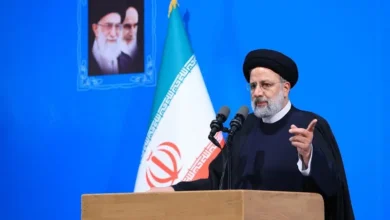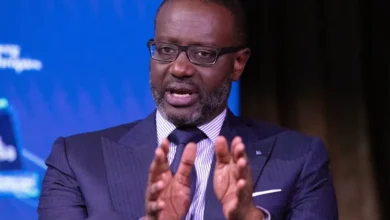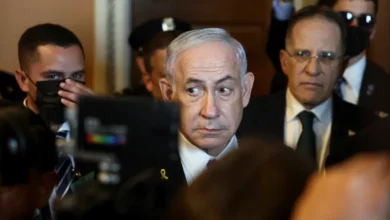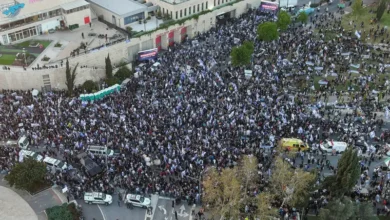Is Biden administration seeking de-escalation – or driving Middle East war?

Holding an ice cream cone, United States President Joe Biden declared in February that a ceasefire in Gaza is so “close” that it may materialise within days.
More than seven months later, not only has Israel’s war on Gaza continued but it has expanded, with Israeli troops invading and bombing Lebanon as tensions and violence boil over across the Middle East.
The Biden administration has continued to verbally call for de-escalation while also providing Israel with political support and a steady supply of bombs to sustain its wars.
Washington has welcomed nearly every escalatory step Israel has taken this year: the killing of Hamas leaders in Beirut and Tehran, the assassination of Hezbollah chief Hassan Nasrallah and the invasion of south Lebanon.
More than a year since the outbreak of war in Gaza, Israel is pushing on with its devastating offensive in the besieged Palestinian territory, which has killed nearly 42,000 people, while bombing Beirut daily and preparing for an attack against Iran.
So, is the Biden administration simply failing to rein in Israel – as many liberal commentators have suggested? Or is it actually responsible for the escalation, exploiting the chaos to advance a hawkish agenda against Iran, Hamas and Hezbollah?
The short answer: With its continuing military and diplomatic support for Israel, the US remains a key driver of the violence in the region despite its statements about restraint and calls for a ceasefire, analysts say. While it is difficult to speculate about the administration’s motives or true intentions, there is a growing body of evidence showing that the Biden administration is in lockstep with Israel, not merely a passive ally which is being defied.
What has the US said and done so far?
After a months-long public push for a ceasefire in Gaza, the US has shifted focus to supporting the Israeli offensive in Lebanon.
US Secretary of Defense Lloyd Austin endorsed an Israeli ground campaign in south Lebanon last week which risks becoming a full-scale invasion of the country.
“I made it clear that the United States supports Israel’s right to defend itself,” Austin said in a statement on September 30 after a call with his Israeli counterpart, Yoav Gallant.
“We agreed on the necessity of dismantling attack infrastructure along the border to ensure that Lebanese Hezbollah cannot conduct October 7-style attacks on Israel’s northern communities,” Austin said, referring to the attack by the Palestinian group Hamas on southern Israel during which at least 1,139 people were killed.
The Lebanese group had started attacking Israeli military positions in October last year in what it said was an effort to pressure the Israeli government to end its war on Gaza, which it launched after the Hamas attack.
For months, the near-daily clashes were largely contained to the border area. The violence pushed tens of thousands of people from both sides of the border to flee. Hezbollah argued that the residents of Israel’s north can return only when the country ends its war on Gaza.
After an assassination campaign against Hezbollah’s top military officials, Israel launched an enormous bombing campaign across Lebanon, destroying civilian homes across hundreds of villages and towns late on September 23.Osamah Khalil, a history professor at Syracuse University, questioned the sincerity of Biden’s diplomatic efforts, raising doubt over media reports that Hochstein urged restraint from Israel.
Khalil stressed that the US had been a direct participant and backer of Israel’s actions in Gaza and the rest of the region, but that the Biden administration used ceasefire talks as a “domestic politics” ploy to shield itself from criticism at home.
“All this was negotiations for the sake of negotiations, particularly as the war became increasingly unpopular,” Khalil told Al Jazeera last month.
‘Reshape the Middle East’
Two recent US media reports appear to validate Khalil’s assertion.
Politico reported on September 30, citing unidentified sources, that senior US officials – including Hochstein and Brett McGurk, the National Security Council coordinator for the Middle East – have privately backed an Israeli military push against Hezbollah.
“Behind the scenes, Hochstein, McGurk and other top U.S. national security officials are describing Israel’s Lebanon operations as a history-defining moment — one that will reshape the Middle East for the better for years to come,” the US publication reported.
Separately, Axios reported last week that the US is trying to take advantage of the blows Israel has dealt on Hezbollah by pushing for the election of a Lebanese president supported by Washington.
The Lebanese presidency has been vacant for nearly two years, with the parliament unable to find a consensus to choose a new leader.
On Tuesday, US Department of State spokesperson Matthew Miller described the war in Lebanon as an “opportunity” to change the country politically. He said Washington wanted the Lebanese people to have “the ability to elect a new president [and] the ability to break the stalemate that Hezbollah has had over the country”.
Hezbollah and its allies control dozens of seats in the Lebanese parliament as a result of free elections in the country.
Reshaping the region has always been a goal for the US neoconservative movement, which promotes support for Israel and elevating US-friendly governments through hawkish foreign policy and military interventions. That approach was most clearly visible under former US President George W Bush.










